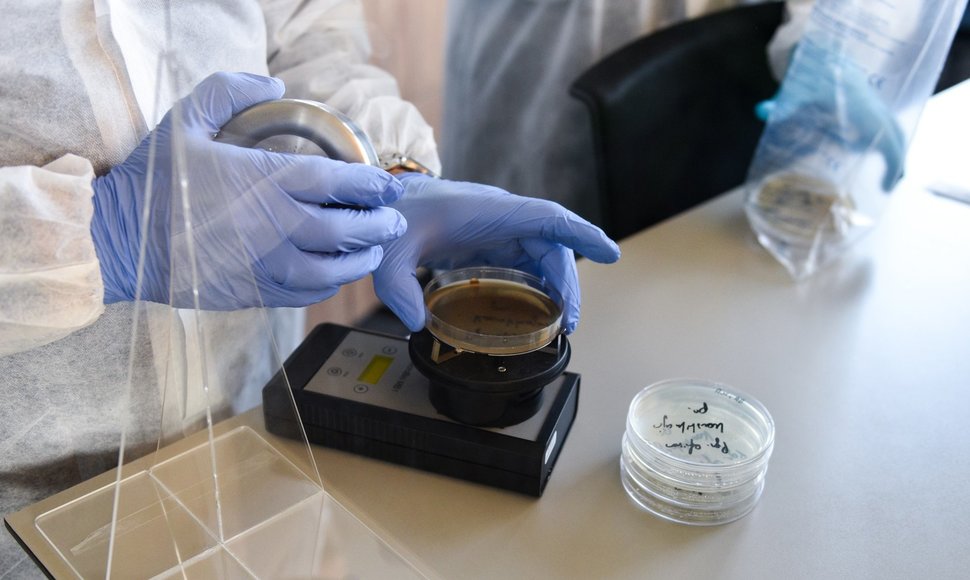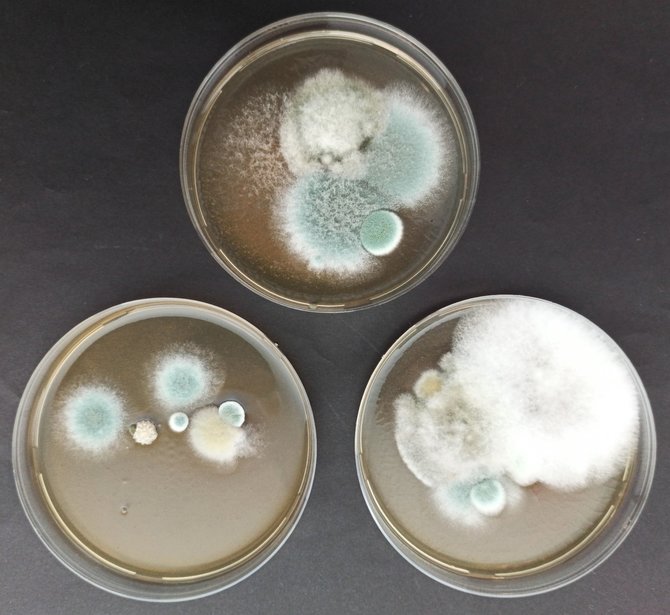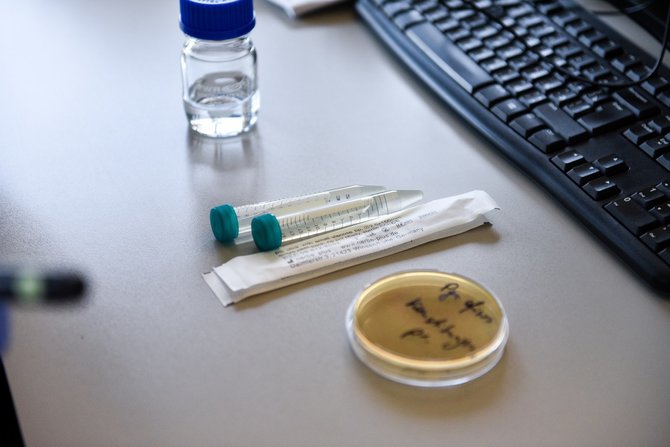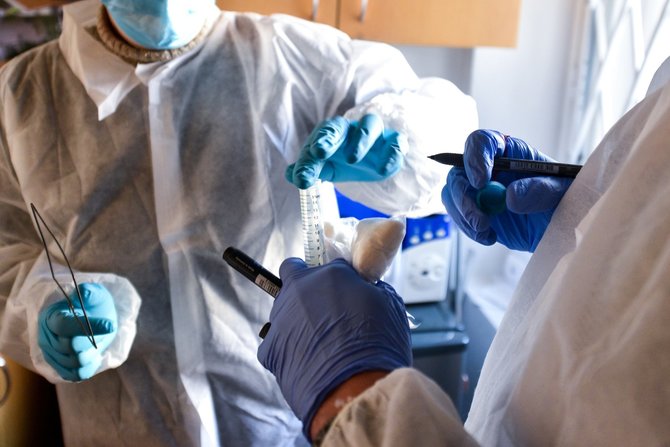After 18 samples from different offices were examined, it was found that both air and surface contamination levels were more than twice the normal level in some of the offices located in the centre of the capital. The main reason for this is insufficient cleaning and ventilation of spaces.
Dr. Algimantas Paškevičius, the laboratory head and chief researcher for the study, notes that some of the microscopic fungi found in offices could have an impact on human health.
“In such cases, everything depends on the quantities of fungi and the individual person’s immune system. Large amounts of undesirable microorganisms can lead to upper respiratory tract complications, reduce productivity, and lead to allergic reactions. Of course, it is impossible to completely avoid microorganisms, but the less of them, the better,” the scientist advises.
Contamination created by people
The Nature Research Centre tested both air and surface samples from typical offices, which employ tens of staff members.
The largest air and surface contamination were found in an office in the Old Town (Senamiestis), which is cleaned once a week. Meanwhile, an office in the capital’s Konstitucijos Avenue, which is cleaned every day, had markedly better air and surface circumstances – half the number of undesirable microorganisms were found.
According to Dr. Paškevičius, we create contamination ourselves. During the study, people moved around every day – with staff members constantly arriving, departing, and various guests visiting.
“Bacterial contamination is related to human activity. The more staff and guests there is in an office, the greater their rotation, the greater the likelihood of larger quantities of microorganisms in the air, because in most cases, either people or air currents bring them into the premises,” the scientist says.
Not everyone can work from home
Andrius Kinderis, head of the Cleaning Services Department at Švaros Broliai, the company that initiated the study, highlights that the more contaminated office was cleaned by a single individual once a week, while in comparisons the cleaner office was professionally cleaned every day.
The specialist says that this should be considered in context: the staff of companies that see constant movement of people, face around ten million different bacteria every day. It is impossible to avoid them because bacteria exist everywhere: in the air, on different surfaces, on people’s bodies and clothes.
“Perhaps it would be simpler to have some staff working from home, but by no means are all employers able to do this. The comparative results of the study show that a more effective approach to creating hygienic and safe working conditions is to set higher requirements for the maintenance and cleaning of premises,” A. Kinderis notes.
According to the specialist, the coronavirus pandemic shook many organisations’ views of workplace hygiene and spurred them to place greater attention on it. Nevertheless, it is important not to forget that effective maintenance and cleaning demand consistency.
“For example, given current circumstances, periodic disinfection of air and surfaces in premises has become routine for various organisations that cannot perform remote work and want to ensure the safety of their staff and customers. However, when moving from place to place every day, we are surrounded by various undesirable microorganisms, the effective elimination of which demands constant, competent care. This is illustrated by the indicators found in the study as well,” A. Kinderis says.















